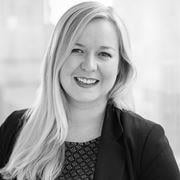 Charlotte Fernández
UKIMEA Press Office,Leeds
Charlotte Fernández
UKIMEA Press Office,Leeds
Arup has joined the Urban Africa Risk Knowledge (Urban ARK) project, a new programme of pioneering research, which aims to reduce disaster risk in urban sub-Saharan Africa.
The project, led by Professor Mark Pelling of King’s College London, has been awarded £3.3 million of funding from the UK’s Economic and Social Research Council (ESRC) and Department for International Development (DFID).
Arup is a private sector partner and will work in close partnership with University College London and alongside King’s College London, Save the Children, UNHabitat and a series of community organisations and African research institutions.
Arup will help the team undertake research in cities in Senegal, Nigeria, Malawi, Kenya and Niger, in order to better understand the nature and scale of disaster risks in urban centres.
As well as contributing to the funding of the project, Arup will provide expansive applied research experience gained from previous projects including The Rockefeller Foundation's City Resilience Index project and Asian Cities Climate Change Resilience Network.
“The Urban ARK programme of work is international and interdisciplinary. Working closely with those at risk, urban planners, developers and humanitarian agencies will enable a research process that can highlight disaster risk drivers embedded in contemporary and emerging development trajectories – and allow the consideration of alternatives to break cycles of risk accumulation.
Professor Mark Pelling, King’s College London
“Arup is delighted to be a member of a team engaging in such pioneering and critical research. We’re looking forward to collaborating with a series of organisations across the Urban ARK programme whilst bringing our own expertise honed from extensive work with cities across the developing world.
Andrew Charles, Senior Consultant, Arup
The project runs from January 2015 for three years.